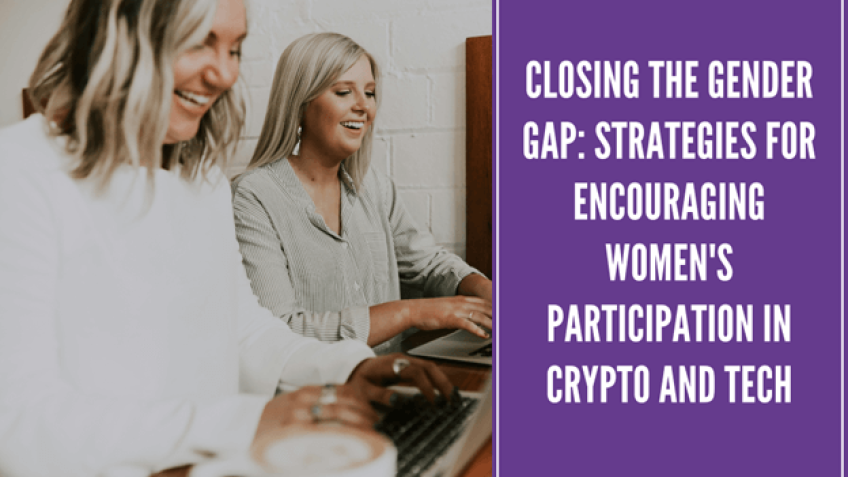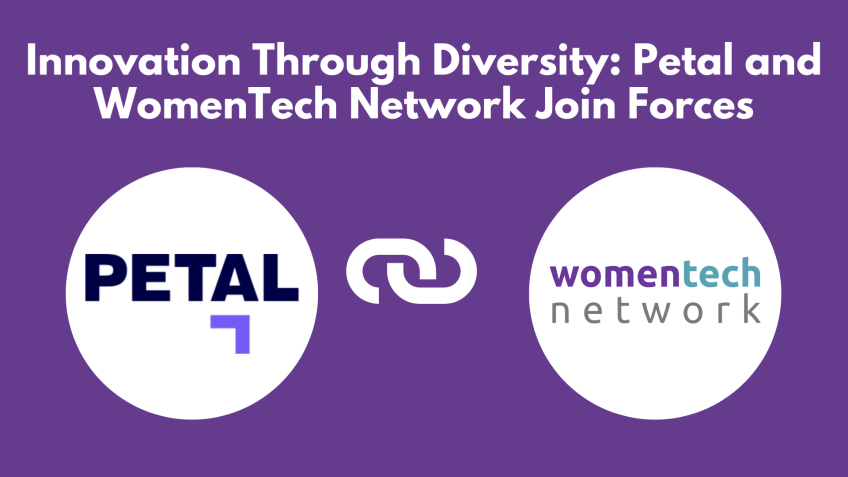
As a young woman fascinated by the endless possibilities of the internet, I always wanted to understand the mechanics behind my favorite websites. Hours spent online ignited a passion in me, gearing me towards the dynamic and ever-evolving world of web development.
Getting into tech wasn't a smooth ride. There were challenges, moments of self-doubt, and the occasional skepticism from those who believed coding was a men's world. However, every roadblock only fueled my determination to prove that passion and skill know no gender boundaries.
Nowadays, I’m an accomplished web developer at DesignRush, one of the top B2B marketplaces in the digital space. But I wasn’t always so confident.
Let's talk about the elephant in the room—what’s it like to be a woman in IT? Well, it can get quite lonely. The underrepresentation of women in the technology sector is an undeniable reality, evident in statistics. Did you know that less than 35% of US web developers are women?
So, why is this the case? The reasons are complex, but I found it boils down to three major factors:
Societal Bias: Gender bias plays a significant role in shaping perceptions of certain professions and influencing what young girls believe they can achieve. The lack of women tech leaders, coupled with the predominant presence of men in most roles (particularly in C-suite positions), makes it seem as though the IT industry may not be inclusive. The female representation, or lack thereof, influences girls and young women everywhere, perhaps keeping them from getting into tech.
Education: The influence of societal bias extends into educational systems. The absence of a female majority in STEM (Science, Technology, Engineering, and Mathematics) classes dissuades many students from considering STEM majors, much less pursuing tech careers.
Workplace Systems: Beyond the evident gender gap in the workforce, leadership positions within tech companies are also predominantly held by men. The imbalance goes deeper than the manpower (pun intended). Women in tech often have lower salaries and fewer opportunities for advancement. Many female IT experts face discrimination in the workplace, even in high management roles.
Confronting these systemic issues requires a collective effort. We have to challenge stereotypes, foster inclusivity from an early age, and dismantle barriers within educational and workplace systems. By recognizing and actively working to overcome these challenges, we can create an environment where women too can thrive.
In IT, diversity shouldn’t be just a buzzword; it should be the norm. Diverse teams bring fresh perspectives and ideas, fostering creativity and innovation. As a woman in tech, I can provide a unique viewpoint, at the same time challenging the status quo.
Of course, there have been moments when I felt anxious and even worse—unwelcomed. A memory of an unfortunate meeting comes to mind. Let me set the stage:
A dimly lit conference room. I am sitting on the world’s most uncomfortable plastic chair, surrounded by rows of stern faces fixated on their laptops. I can't shake the anxiety creeping up on me so I shake my leg instead. The air feels thick with unspoken judgments, and the weight of being the sole woman in a room full of men bores down on me.
The meeting was in full swing, but I couldn't escape the sinking feeling that my voice was merely a whisper in a sea of louder, more assertive tones.
I pitch an idea, a solution to a performance issue, but it’s as if my words evaporate into the air. Eyes flicker away, conversations continue without pause, and I feel like an outsider in my own profession. It wasn't the first time I'd encountered such a deafening silence, but the sense of isolation cut deeper this time.
I clearly remember the glances exchanged among my male colleagues. They were subtle, yet their impact was profound. It was as if they had already decided that my perspective was secondary, that my ideas were somehow less credible because of my gender.
Along with the frustration of not being taken seriously, I was plagued by imposter syndrome. I started feeling like an intruder in my own office. As if despite all my hard work, I still didn’t deserve to be here.
But in such moments of vulnerability, I found strength. I reminded myself of the countless hours I had dedicated to my career, the sleepless nights debugging code, and the genuine interest and passion I had for web development. I realized that my competence and dedication were my armor against the skepticism in the room.
To overcome being unheard and looked down upon, I decided to take a bold step. I chose not to shrink into the background but instead raised my voice, both literally and metaphorically. I started by addressing my concerns openly, speaking up in meetings, and repeating myself until I was sure my input had been acknowledged.
Additionally, I took proactive measures to showcase my skills. I volunteered for challenging projects, consistently delivered high-quality work, and collaborated with my colleagues to solve complex problems. Gradually, my contributions spoke louder than their initial assumptions and perceptions of me.
Mental empowerment became my daily ritual. I focused on the positive impact I could make, not just for myself but for future generations of women in tech. I embraced the role of a trailblazer, reminding myself that my journey paves the way for others. Instead of letting anxiety dictate my narrative, I used it as fuel to break down barriers and redefine expectations.
In the face of adversity, I learned that my strength lay not only in my technical prowess but also in my resilience and unwavering belief in the significance of diversity in the tech industry. With each obstacle overcome, I became more confident, not just in my professional skills, but in my person. Myself, as a woman.
Being a woman in tech is not just a role; it's a revolution. It's about rewriting the code. Only by breaking the stereotypes can we create a more inclusive industry, and leave a legacy for the next generation of women.






